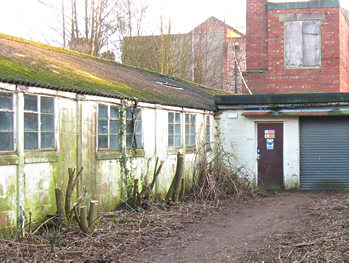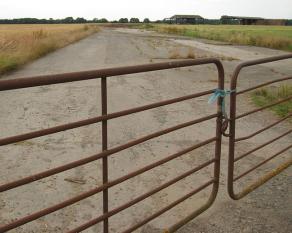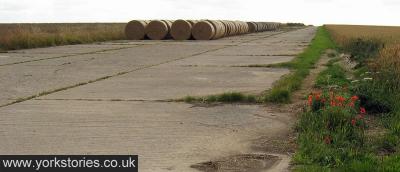Today saw the unveiling of a memorial to Bomber Command, to men who lost their lives around 70 years ago, during the Second World War. Some readers will be fully aware why it’s taken so long to erect this memorial, and why Bomber Command’s wartime role was, still is, controversial. The controversy, and the suffering – on both sides – is clearly and thoughtfully presented on the BBC website: Bomber Command fliers in their own words.
The memorial is in London, so its unveiling today isn’t in an obvious way a York story. Though the York Press brought to our attention the case of a veteran of Bomber Command, from nearby Tadcaster, who had been unable to get tickets for the event.
The comments under the story illustrated that the debate continues.
Some refer to them as ‘the heroes of Bomber Command’. Others argue that there’s nothing heroic in bombing civilians. It has to be said that I’ve never heard these men refer to themselves as heroes. They were just doing their job.
They were young, shockingly young in many cases. They saw horrific things. Around half of Bomber Command lost their lives – those who survived lost many friends. The memorial at last acknowledges them and the colleagues they lost.

I’ve wondered if the discomfort and controversy over the role of Bomber Command is why it wasn’t thought appropriate to preserve the former hostel buildings behind the Art Gallery (pictured left), where many of the men who flew the bombers lodged. Perhaps if Spitfire pilots had stayed there it would have been different.
There were many airfields around York, making this a local issue. Elvington (home of the Yorkshire Air Museum) is well-known. Other airfields are forgotten now.
Elvington’s air museum may be a little too militaristic for some. At East Moor and Tholthorpe and many other locations throughout our county there are bits of old runway and peripheral concrete and old airfield buildings crumbling away, poignant and quiet. I’ve visited many of them, cycled to them and walked around them.
Even if we remain ambivalent, and don’t want to call those men heroes, we can recognise the suffering they endured, as well as the suffering they inflicted. There is, after all, no ‘morality’ in war.
‘Most people accept these men were asked to do terrible things and endure terrible things’
– Patrick Bishop







At last we have seen the creation of a Bomber Command memorial, redressing the governments betrayal of these very young men,who in the 5 years of that conflict,with one of the most efficient,cruel,people exterminating war machines of modern times,gave their lives. I am of that generation,who grew up,during those 5 war years,enduring food,warmth,clothing and nothing in the shops shortages,not forgetting those Nazi luftwaffe heroes,chucking bombs and bullets at us,and it is certain to me, that any of the bomber command critics of todays comfortable generation would feel the same as we old ones who grew up enduring those terrible times.
It is now obvious,that York City,being at the centre of a number of bomber air fields,gave much comfort,and vital relaxation to these young airmen,in their off duty hours,knowing as they did it was unlikely they would survive their next bombing trip,in ensuring the Nazi’s were repaid for their savage attacks ,learning how to do it in Spain,and flattening Warsaw,Rotterdam,and almost all major towns/city’s in the UK,particularly,Hull.Coventry and London,and giving York a going over for good measure.
I wondered when watching the ceremony in Green Park,London,finally crediting those young men for ensuring we won the war,how many of those grand old boys from all over the world,I had seen as a young lad trolling thro’ York of an evening,watching them sky larking,and acting the fool in Coney St,as some sort of escape from the dreadful/nerve wracking escapades they endured in attacking Nazi germany in the only way open to us at the time.Every one quotes what was done at Dresden,as very unnoble of us ,forgetting that we were reacting to far worse done by Germany all over Europe,and we were not the first to do so.
I’ve been trying to form a response to this article for 48 hrs now, but i dont feel i have the words.
I’m of that generation born in the 60s, grew up playing on Clifton Airfield, it was my back garden. My father did his National Service in the Air Force, based mainly in Germany in the early 50s.
I have nothing but respect for the men involved in the Bomber War, men who were braver than i suspect i could ever have been, who made sacrifices i doubt i could have. They gave me a peaceful childhood, and a life free from oppression, a life where i could make my own choices and my own mistakes. A normal life.
These men were betrayed, this memorial, barely in time, redresses some of that, a campaign medal would further redress the debt we owe them.
The Bomber Was was necessary, it gave hope to the people of occupied Europe, it gave confidence to the Russian leaders that they weren’t fighting the Nazi’s alone, it tied down 100′000s of German troops in Western Europe, an away from the Eastern Front, it damaged German industrial production. Perhaps most importantly, it forced the Luftwaffe to fight. The brutal air war, a war of attrition of the most devestating nature, eventually gave the Allies air superiority, without which D-Day coule never have happened.
Without D-Day, we’d now be discussing the morality of using nuclear bombs over German soil, that was the plan, but the war in Europe ended before the bombs were ready.
And we owe no apology for Dresden, the war was continuing, it was a legitimate target, one of the few transport hubs still operating, and been actively used by the German forces.
I can only hope that such a war will never happen again, but memories are short, and history repeats…
Thanks for your comments Stephen and Mallory.
I’ve just been reading an excerpt from the Yorkshire Post, published the day after the Baedeker raid on York. Mainly a defence of British bombing policy:
“Our policy is the only right and realistic one. It is true that the execution of it causes the destruction of a great many non-military buildings and brings death to a great many civilians. Night bombing is not accurate enough to pick out particular targets in crowded cities. It is true also that in total war there can be no precise definition of what is and what is not a military objective. As soon as a country’s total energies are devoted to war, any blow which weakens or diverts those energies, or puts a new burden upon them, may be considered to have military value.”
– Taken from Brett Holman’s website: http://www.airminded.org/2012/04/30/thursday-30-april-1942/
York ‘Baedeker’ raid information is about a third of the way down this page, and may also be of interest.